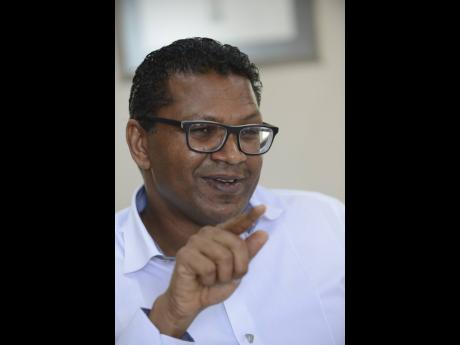‘Let them come’ - Pandohie wants easier process to secure work permits for needed talents
Jamaica should reduce the bureaucracy and costs associated with work permits to encourage companies to source needed talents overseas and bring value to the country, a local business leader has said.
Richard Pandohie, president of the Jamaica Manufacturers and Exporters Association (JMEA), said that there are many skilled persons who aspire to live in a country like Jamaica, and since there is a gap in technical competencies on the island, there must be a drive to encourage immigration of required skill resources.
“Let them come,” he told the Jamaica Institution of Engineers (JIE) Engineers’ Week opening ceremony at the Knutsford Court Hotel earlier this week.
Quoting the 2018 Labour Force Survey, Pandohie said that the highest occupation group in Jamaica is service workers, and shop and market sales workers, and that there is “a huge gap between the technical and skilled workforce in Jamaica in comparison to other areas of occupation”.
He shared: “Our best-trained resources have migrated to pursue economic opportunities and to secure a safer environment for their families, and it is estimated by the World Bank that more than 75 per cent of tertiary-trained Jamaicans have migrated – 90,000 persons through net migration every five years since 1992.”
Noting that the stabilisation of the economy has created opportunities for a higher skills set that Jamaica businesses are unable to fill from the local HR supply, Pandohie said: “We have a significant productivity gap in part due to insufficient local skilled resources and low use of technology, and these are limiting capability to be truly competitive in the global village.”
To get out of this productivity deficit gap, Pandohie suggested, Jamaica must train its people, even with the high risk of them migrating.
In addition, he said, “We must change our myopic viewpoint and embrace migration as an enabler for our country’s development.”
The JMEA president pointed to the tremendous contribution being made by the diaspora “in helping to create value in another economy and sending back remittances that represent 15 per cent or US$2.3 billion – a significant part of GDP and of keeping many households out of poverty”.
Pandohie said that Jamaica should equip its people for outmigration and encourage immigration of required skilled resources to fill the gaps.
Meanwhile, JIE President Christopher Hamilton said that “engineering is a fundamental driver to parts of the economy” as evidenced by significant improvement in the island’s infrastructure in recent years, including the upgrade of several roads, water-supply systems, building of highways, hotels, and electricity-generating plants.
“These changes, coupled with the passing of the new Building Act 2018, are the physical manifestations of the engineers’ contribution to Jamaica’s development and have given rise to great expectations of growth in the economy and, ultimately, the improvement in the standard of living for the average Jamaican,” Hamilton said.

